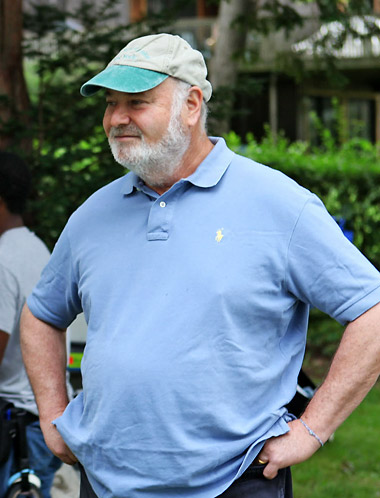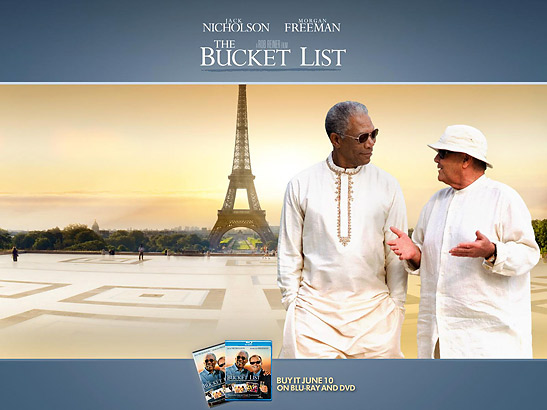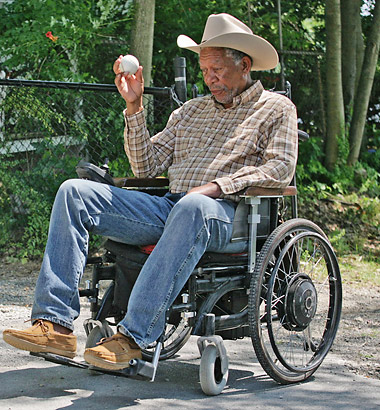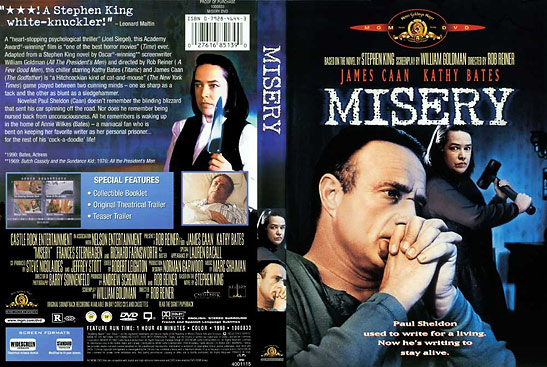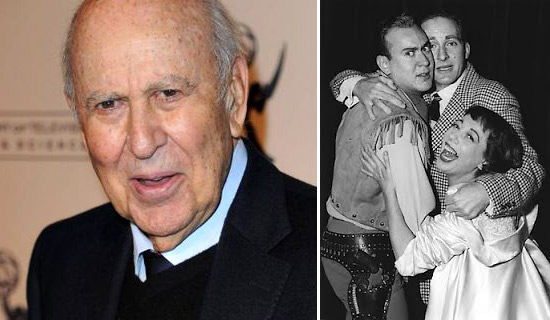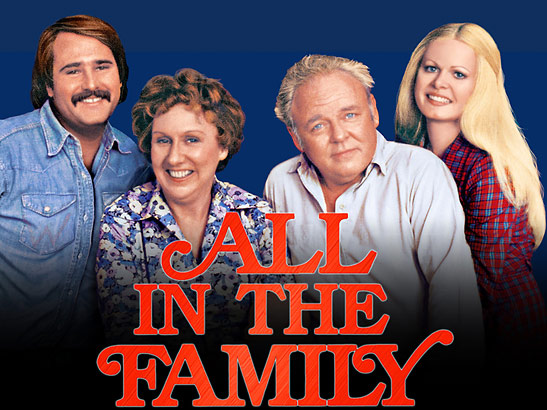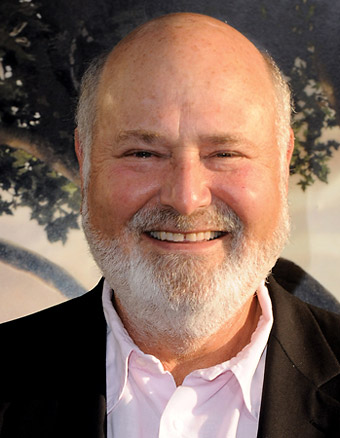 |
 |
|
 |

|
Rob Reiner –
A Director With A Pipeline Into Your Heart By Beverly Cohn
A most gregarious Reiner recently sat down with a few select journalists to discuss his latest film, "The Magic of Belle Isle," the story of Monte Wildhorn, a wheelchair-bound Western novelist (Morgan Freeman) who spends the summer at a lakeside cabin where he fills his days drinking and babysitting a dog. The somewhat surly Monte is ultimately rescued from his darkness by his neighbor (Virginia Madsen) and her three daughters in what turns out to be a win-win situation for all. (Madeline Carroll, Emma Fuhrmann & Nicolette Pierini). The following has been edited for continuity and print purposes.
The "Magic of Belle Isle" is a sentimental film. What kind of feeling would you like the audience to take away with them? Reiner: A similar kind of feeling that they had when they walked away from "The Bucket List" because it has a very similar theme which is about embracing life no matter what your situation is and finding something good about life and celebrating it. In "The Bucket List" you had two guys facing cancer. In this film you got a guy who's basically given up on life because he's in a wheel chair, his wife has died and he's can't write anymore. He's drinking and has shut the door on himself. So, it's what happens with this relationship with the woman next door and her children and the people in that community who actually get him to learn how to live again. Was what we saw on the screen much different from the original script?
Reiner: It didn't change a whole heck of a lot but the Morgan Freeman character (Monte Wildhorn) was initially supposed to be someone in his 50s and Morgan, as you know, is in his 70's. I was originally going to go after maybe a George Clooney or somebody like that. But Morgan's producing partner called me up. She asked if we were developing anything at Castle Rock Entertainment that Morgan might be interested in. We had done "The Bucket List" together and I enjoyed working with him. And I thought oh my God. Morgan is so good that you don't really need to change the script to make it an age thing because it's really just about a person who has given up and how he learns to live again. I thought I was an idiot because I should have thought of him to begin with because if I could make every movie with Morgan, I would. Because of having worked with Morgan on "The Bucket List," was it different working with him this time? Reiner: You know it wasn't all that different. Morgan and I found out that we work exactly the same way. We're both very, very fast. I would come in with new scenes every morning. He'd look at it and say, 'Got it.' He would process things so fast and when you do a take with him, he'd nail it every time. I mean it was never that we had to do many, many takes. And I'm the same way. If we get it on the first take, I say let's move on. It was really necessary on this film because we only had twenty-five days to shoot. You got some incredible performances out of the kids and the dog. Could you talk a little bit about the dog? Reiner: The dog was interesting. Think about the auditions for that dog. (Laughter) You gotta' get a dog that can lick his balls on cue (Laughter) so basically you're bringing in these dogs one after the other, and here's a trade secret, they put peanut butter down there. I didn't put the peanut butter down there but the trainers applied the peanut butter and the dogs were more than happy to do whatever. That was a funny audition and I thought what am I doing for a living here. (Laughter) The other funny thing was these are Labrador Retrievers. The one thing they can do is fetch and their instinct is to, run after the ball, so we had to train these dogs not to fetch, but when he goes after the ball at the end, that was his natural thing. What about the kids? Reiner: With Maddy (Madeline Carroll), I had
worked with her before so I knew what she could do and knew she would
be perfect for the part of Willow. For the other roles, I went through
an extensive casting process and looked at many, many girls because
I had a very clear image in my mind of what I wanted for each of those
roles. I was looking for a scout type from "To Kill a Mockingbird."
You know, that type of very cute, adorable, tomboyish kind of girl so
when Emma (Fuhrmann) came in and read, I said oh yes, that's
it and the same with Nicolette (Pierini). Reiner: A lot of this is Guy Thomas. He hadn't written anything in thirty years. He wrote a screenplay many years ago called "Wholly Moses" which starred Dudley Moore and didn't like how it came out and dropped out. He was living at Lake Malibu and not doing much of anything and met this woman who lived next door who was going through a divorce who had three daughters. He fell in love with her and loved these kids but never consummated his love for her. In his mind he viewed himself has being handicapped. It's interesting that he put the character in a wheelchair because in his mind he felt emotionally handicapped. So a lot of it was his, but we added number of things. It's really about not just his relationship with the mother and the daughters, but all of the people in the town. He affects then and they affect him and the aggregate of all that infuses life back in him and he also gives them something. When you work with actors who don't have your technique of working, do you change to accommodate their way of working? Reiner: You work with every actor differently. It's like if you are a mother with children, some children need more discipline, while with other children you have to back off a little bit. It's the same thing with actors. Some actors need a lot of handholding; other actors like to be left alone; some actors like to be nudged a little bit, and some actors don't mind line readings. They say, 'How do you want me to say it?' So, because I've been an actor, I can do that for them and I also hear how it's supposed to sound.
When I did "Misery," Kathy Bates, who is a stage-trained actress, and loves lots of rehearsals. Jimmy Caan who basically grew up on films likes no rehearsals. He wants to just get in there and whatever happens at the moment, happens. So, I had to do more rehearsals than Jimmy liked and less rehearsals than Kathy liked. Do you use improvisations in your directing style? Reiner: Some actors can't do it and don't like to do it but if I know someone is a really good improvisational actor, I'd be foolish not to take advantage of it as he'll come up with all kinds of goodies. What was it like growing up with your famous dad? Reiner: Of the show business fathers that you could have, it was probably the best situation that I could ever have because he was a real father, a home kind of guy. We were all together as a family and I saw him a lot.
When I was a young kid, he was doing "Show of Shows," which was a live television show on for ninety minutes every Saturday. But it was off for thirteen weeks a year during the summer so we went as a family on vacation. When I was thirteen, fourteen, fifteen, sixteen, he was doing "The Dick Van Dyke Show" and he'd let me come down to the studio and hang out with him and he'd let me watch how he worked with the actors and how he re-wrote scripts, so I learned a lot. I spent a lot of time with him in as good a situation as you could have. Did your dad recognize your talent as a youngster? Reiner: Not until I was nineteen years old. As a kid, he never thought I was talented at all. When I was an eight-year-old kid, I used to play with Norman Lear's daughter. We were playing a game of Jacks or something and I was announcing the game and doing some shtick. Norman went to my dad and said, 'Your son is really funny.' My dad said, 'That kid?' (Laughter) He's not funny. So he never thought I was funny until I was nineteen and did an improvisational theatre group. I wrote and directed and acted in some plays. Then he could see it and got behind me, and jumped on the bandwagon.
When did you realize that you no longer stood in your father's shadow?
Reiner: Interesting question. It didn't really happen until I did "Stand By Me" and I was already in my mid-thirties. I had been successful in "All in the Family," and had done a couple of movies, "This is Spinal Tap" and "Sure Thing." "This is Spinal Tap" was a satire and even though it was a movie my father probably wouldn't make, he was raised in satire. "Sure Thing" was a romantic comedy and he had done those. "Stand By Me" was the first time I did a film that was completely an extension of my personality. It had kind of a melancholy feel, but was also fun. It also had an emotional part to it and was something my father, in a million years, would have never approached. It was doing that and being accepted and validated was the first time that I felt I was breaking away. How do you find balance between your career, family, and your political activism? Reiner: Well, family is always, always first. As a matter
of fact, there was a time when I was thinking of running for governor
in California and I sat with my family and polled 40% in my own family,
so I couldn't carry my own family essentially. (Laughter) So
that was it. I'm not gonna' run because they didn't want me to, so that
was that. The family comes first so if anything gets in the way of that,
then I don't do it. I've taken my family when I've gone off to make
movies. Now they're older, two of them are out of the house, but I still
have a 14-year-old daughter at home, but if it took me away for any
length of time, I wouldn't do it. |
This site is designed and maintained by WYNK Marketing. Send all technical issues to: support@wynkmarketing.com

|











